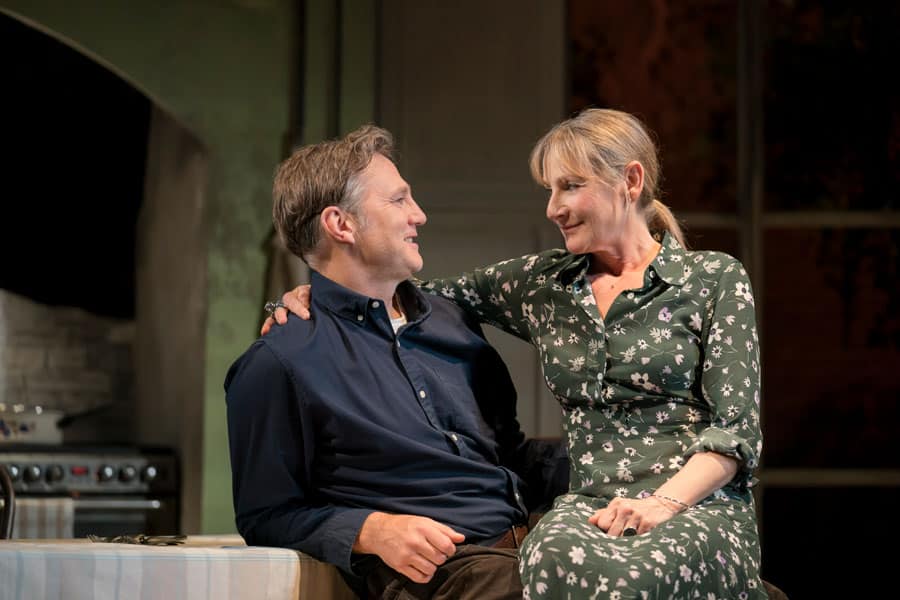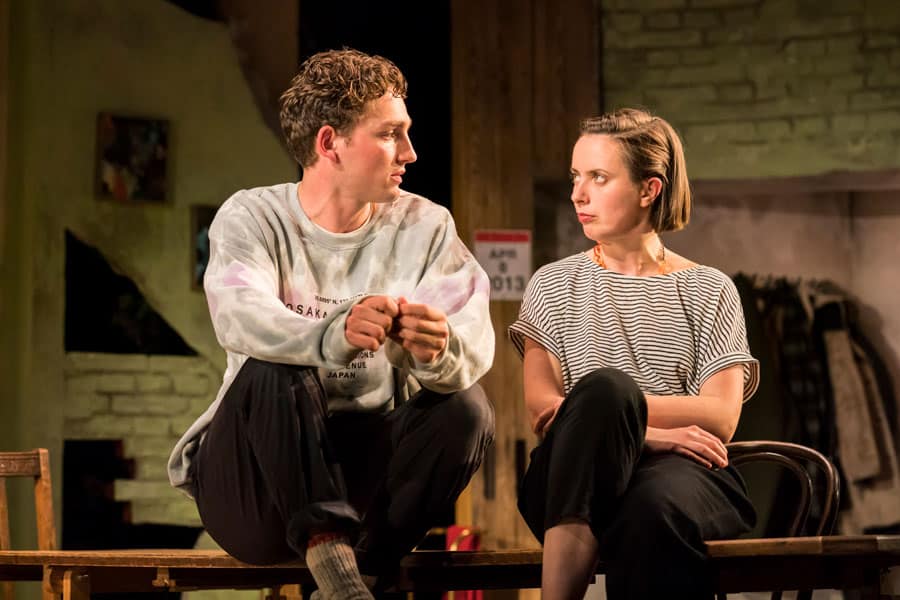Paul T Davies reviews Jack Thorne’s play The End Of History directed by John Tiffany now playing at the Royal Court Theatre, London.

The End of History
Royal Court
4 July 2019
3 Stars
Book Tickets
For their latest collaboration, writer Jack Thorne and director John Tiffany have created a more intimate production than Harry Potter and the Cursed Child. Set over twenty years, from Blair to Brexit, parents Sal and David manage to get their children around for important events. Three acts, and running with no interval, with ten years passing in between, and evolving from Thorpe’s own family experience, the personal is very much political as Sal and David feed their children Leftist ideology.

The main draw in Tiffany’s production is the beautiful acting. Lesley Sharpe is a bundle of nerves as Sal, anxious at meeting her son’s “posh” girlfriend in scene one, yet her commitment to her ideology means she argues very quickly, “No talent at all when it comes to cooking…but when it comes to pissing off my children-immense talent.” David Morrisey is outstanding as David, down to earth, principled, challenging his children, seemingly withholding his love, as does Sal, but both actors manage to convey the deep love they have for their kids. As Larkin famously wrote, “They fuck you up, your Mum and Dad. They may not mean to but they do.” Kate O’Flynn is particularly strong as Polly, the one who went to Cambridge University, and Sam Swainbury brings some of his hangdog expressions from TV’s Mum to Carl, yet with more erudite arguing, and Laurie Davidson has a haunted fragility as Tom.

Yet I often felt that the cast, particularly the younger, were doing their best with a play that struggled to come into focus, and the characters didn’t feel fully complete. I was concerned that Tom, who is gay, is the one who attempts suicide, has failed relationships, but his sexuality seemed arbitrary, why was the character gay? That’s not to say his siblings are any happier, but his sexuality feels like the sole reason for his unhappiness. However, the play really comes into focus when, in the third act, David reads out his speech to Sal, taken too young from cancer, and attempts to hold to Quaker tradition of stating facts not eulogising. Morrissey breaks your heart here, and, along with her children, we find out more about Sal than we did in the previous two scenes. I know women like her, and this beautiful sequence makes me fear they are an endangered species.
For me, the play needed more time to breathe and develop; maybe a full two acts with an additional scene could have taken us into the family dynamic more. But Thorne’s writing, as always, crackles with humanity and humour in many places, and see it for the sublime performances.
Until 10 August 2019
